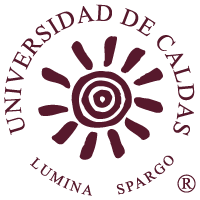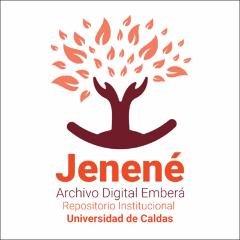Mostrar el registro sencillo del ítem
In search of pre-Columbian migrations to the Caribbean: Indigenous mitochondrial DNA from northern South America
| dc.contributor.author | Martinez, Juan C | |
| dc.date.accessioned | 2023-08-30T15:38:23Z | |
| dc.date.available | 2023-08-30T15:38:23Z | |
| dc.date.issued | 2008-12-31 | |
| dc.identifier.uri | https://repositorio.ucaldas.edu.co/handle/ucaldas/19565 | |
| dc.description.abstract | In an effort to gain a better understanding of the migratory processes related to the peopling of the Caribbean, the aim was to characterize Native American mtDNAs from Colombia and Venezuela and compare them to their Puerto Rican counterparts. This is the first work that integrates sequencing information of the mtDNA from northern South America, Colombia and Venezuela, with Puerto Rico. Up to date, only isolated mtDNA studies have been carried out in each of these countries. Sixty-one samples from unrelated volunteers were obtained from Colombia (Andean Region and Atlantic Coast), and Venezuela. Mitochondrial HVR-I and HVR-II sequences were aligned and compared to the rCRS, showing that 93.4% of the mtDNA samples were of Amerindian origin. Participants of Northern South America, belonged to haplogroups A (44.26%), B (31.14%), C (11.47%), D (6.55%), L (4.91%), and U (1.63%). Northern South America and Puerto Rico shared mutations mainly in Native American haplogroups A and C. Genetic diversity measures and neutrality test statistics were performed. An individual from Venezuela (VE6) belonging to haplogroup C exhibited ancient mutations related to lineage C-II, a Puerto Rican lineage believed to have arrived to the Greater Antilles in Pre-Arawak times. Through coding sequence determination and restriction analysis it was shown that VE6 belongs to the Native American C1b clade, and to the RFLP haplotype AM 32, which supports a South American origin for Puerto Rico. In addition, two individuals from Colombia (S2) and Venezuela (VE1) classified as belonging to haplogroup A showed the 16129 transition that defines lineage A-VIII of Puerto Rico. This transition has been found in the extinct Ciboneys of Cuba, and North, Central, and South American tribes, plus modern Dominicans. Therefore, the origin determination of this Puerto Rican lineage will require complete mtDNA sequencing of the latter samples. It would be recommendable to expand the sampling of the Caribbean Coast of Colombia, and Venezuela with the purpose of finding more connections with Puerto Rico and helping in the reconstruction of the pre-Columbian migrations to the Caribbean. | eng |
| dc.format.mimetype | application/pdf | spa |
| dc.language.iso | eng | spa |
| dc.source | https://chem.ckcest.cn/Degree/Details?id=171501 | spa |
| dc.title | In search of pre-Columbian migrations to the Caribbean: Indigenous mitochondrial DNA from northern South America | eng |
| dc.type | Trabajo de grado - Pregrado | spa |
| dc.publisher.place | University of Puerto Rico | spa |
| dc.rights.accessrights | info:eu-repo/semantics/closedAccess | spa |
| dc.type.coar | http://purl.org/coar/resource_type/c_46ec | spa |
| dc.type.content | Text | spa |
| dc.type.driver | info:eu-repo/semantics/bachelorThesis | spa |
| dc.type.version | info:eu-repo/semantics/publishedVersion | spa |
| oaire.version | http://purl.org/coar/version/c_970fb48d4fbd8a85 | spa |
| oaire.accessrights | http://purl.org/coar/access_right/c_14cb | spa |
Ficheros en el ítem
Este ítem aparece en la(s) siguiente(s) colección(ones)
-
Tesis [18]





